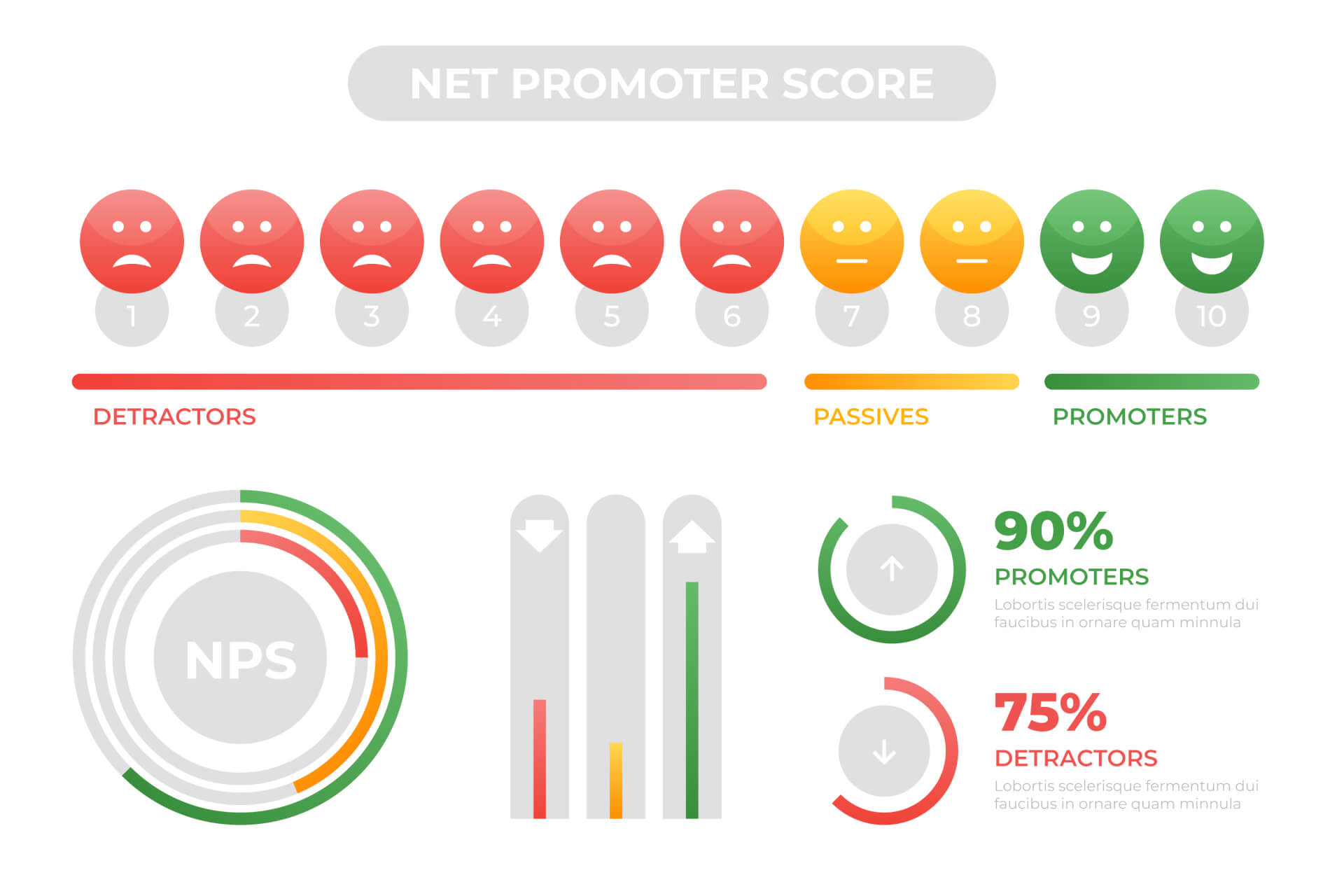In the ongoing approach to increase the business, companies are constantly looking for ways to improve customer satisfaction and loyalty. One metric that has gained popularity in recent years is Net Promoter Score (NPS).
NPS measures the likelihood of customers to recommend a company's products or services to others. In this article, we will explore the impact of NPS on sales and growth for businesses.
What is NPS?
 Net Promoter Score (NPS) is a customer loyalty metric that measures the likelihood of customers to recommend a company's products or services to others.
Net Promoter Score (NPS) is a customer loyalty metric that measures the likelihood of customers to recommend a company's products or services to others.
Customers are asked to rate their likelihood to recommend on a scale of 0 to 10. Based on their responses, customers are categorized into Promoters (9-10), Passives (7-8), and Detractors (0-6).
The NPS score is calculated by subtracting the percentage of Detractors from the percentage of Promoters.
The Impact of NPS on Sales:
 1.Increased Customer Retention
1.Increased Customer Retention
Companies with high NPS scores tend to have higher customer retention rates. Promoters are more likely to make repeat purchases and become loyal customers, leading to increased sales and revenue.
2. Word-of-Mouth Marketing
Promoters are more likely to recommend a company to their friends, family, and colleagues. Positive word-of-mouth marketing can lead to new customer acquisitions and increased sales.
3. Customer Lifetime Value
Customers who are promoters tend to have a higher lifetime value. They are more likely to purchase additional products or services and become brand advocates, contributing to long-term sales growth.
The Impact of NPS on Growth:

1. Improved Customer Experience
Companies that focus on improving their NPS scores often prioritize customer experience.
By listening to customer feedback and addressing pain points, businesses can enhance the overall customer experience, leading to increased customer satisfaction and growth.
2. Data-Driven Decision Making
NPS provides valuable insights into customer sentiment and preferences.
Companies can use this data to make informed decisions about product development, marketing strategies, and customer service initiatives, driving growth and innovation.
3. Competitive Advantage
Companies with high NPS scores have a competitive advantage in the market. Customers are more likely to choose a company with a strong reputation for customer satisfaction, leading to increased market share and growth opportunities.
Conclusion
In conclusion, Net Promoter Score (NPS) can have a significant impact on sales and growth for businesses. By focusing on improving customer satisfaction, loyalty, and advocacy, companies can drive revenue growth, increase customer lifetime value, and gain a competitive edge in the market.
Incorporating NPS into business strategies can help companies achieve sustainable growth and success.

Reading recommendation: If this article helped you and you would like to find out more about the Net Promoter Score, continue reading here: “The Net Promoter Score – Basics and Areas of Application”
FAQs
What is a good NPS score?
A good NPS score typically falls between 50 and 70, indicating a high level of customer loyalty and satisfaction.
How can companies improve their NPS scores?
Companies can improve their NPS scores by listening to customer feedback, addressing pain points, and delivering exceptional customer experiences.
Is NPS the only metric that companies should focus on?
While NPS is a valuable metric, companies should also consider other metrics such as customer satisfaction, retention rates, and customer lifetime value.
Can NPS be used in any industry?
Yes, NPS can be used in any industry to measure customer loyalty and satisfaction, regardless of the products or services offered.
How often should companies measure their NPS scores?
Companies should measure their NPS scores regularly to track changes in customer sentiment and identify areas for improvement.